
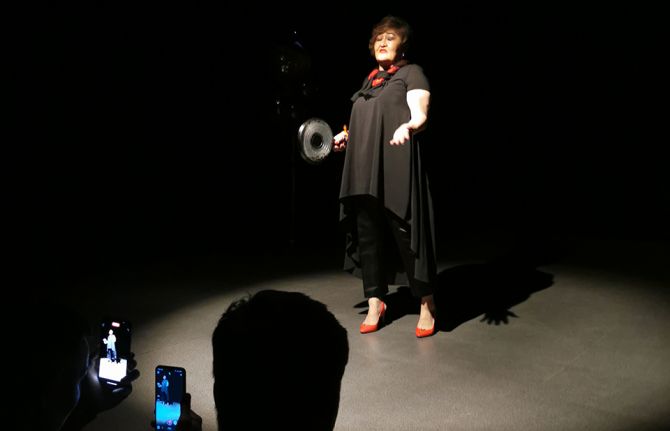
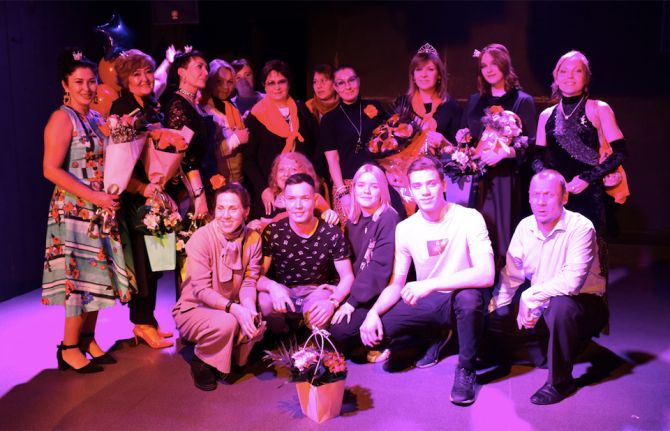

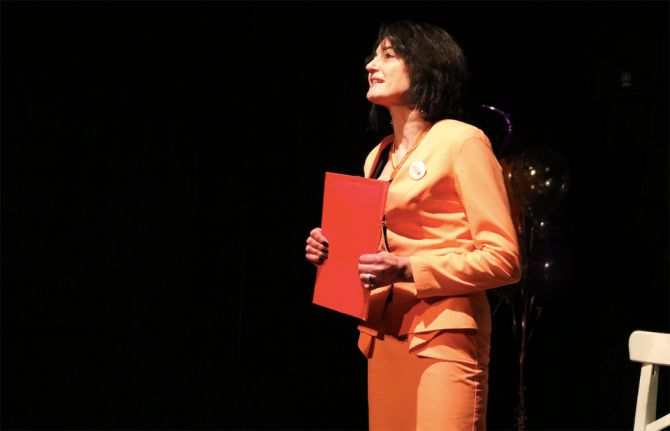
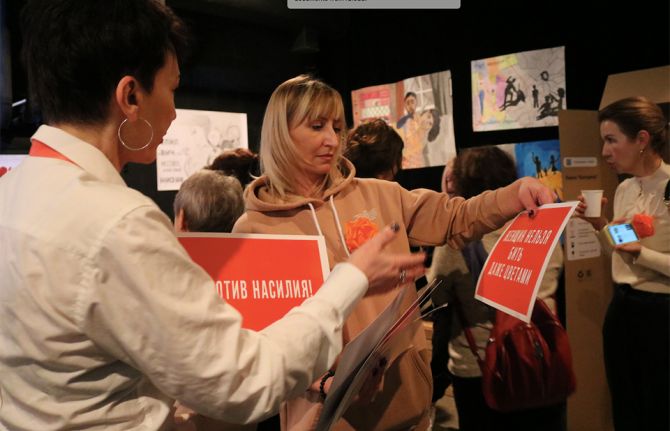
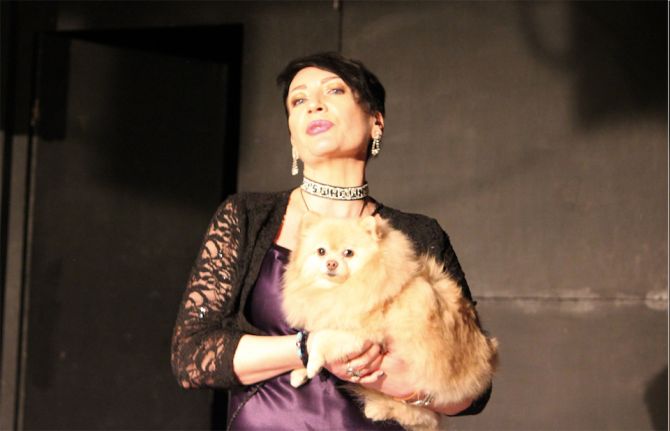
Feature Story
“Play with your heart”— Kazakh women living with HIV tell their stories from the stage
14 February 2022
14 February 2022 14 February 2022The ARTiSHOCK Theatre in Almaty, Kazakhstan, recently premiered an extraordinary performance: all its actresses were women living with HIV, ex-prisoners and women who use drugs. They played the role of women who faced stigma, discrimination and violence, an echo of their own life stories.
The performance, the script for which was written by female activists, was the idea of the Revanche Center for Comprehensive Care (also known as the Revanche Foundation), supported by the UNAIDS Country Office for Kazakhstan and the Eurasian Network of Women Living with HIV.
“The idea of a social theatre was a dream that has finally become a reality,” said Anna Kozlova, a social worker for the Revanche Foundation. “We decided to talk about the experience of violence. After all, it is not only physical or sexual. To be rejected by society and discriminated against is also violence, but psychological.”
Nadezhda Plyaskina, the play’s director, said that it was not easy to work with the aspiring actresses. “I was afraid: these women have such considerable life experience; what can I teach them? In addition, it was necessary to teach acting in a way that did not hurt: they are all vulnerable. Each rehearsal revealed them to me as real, amazing, wonderful people. I told them: “Play with your heart.””
And they played with their hearts, telling their stories of imprisonment, abuse, stigma, loneliness and hope. The performance was a great success and was widely covered by Kazakh media.
Ms Kozlova began using drugs when she was 17 years old, which landed her in prison for 17 years. “All women who come out of prison are already victims. They are broken, vulnerable, don’t know how to live, where to go. They need help to become strong.” Four years ago, she went to the Revanche Foundation for help, and there she found a job, a family and a purpose. “I know from my experience that things can change,” she said.
Zulfiya Saparova has been living with HIV for 15 years; she is on antiretroviral therapy and works as a peer consultant for Equal to Equal Plus. She faced abused and violence and tells her story from the stage. “My heroine in the performance comes on stage holding a frying pan. This story is imprinted in my memory: my neighbour constantly walked around with black eyes. She was beaten by a drunken husband. Once her daughter came to visit her, and a black eye appeared on the husband’s face—she had protected her mother by beating him with a frying pan.”
Natalya Kovaleva, a social worker for the Revanche Foundation, spent eight years in prison. Her last term was three years and compulsory treatment for drug addiction. Currently, she works with young people who use drugs on HIV prevention. “If it wasn’t for the Revanche Foundation, I would either be behind bars or dead,” she said. “I have a mission here.”
The heroine she plays faces physical and psychological violence, total control, prohibitions and beatings. “I don't want to arouse pity, so I played a strong, independent woman who refuses to endure bullying. All this was in my own life,” said Ms Kovaleva.
The Revanche Foundation helps women in difficult situations, including women living with HIV, women who use drugs, children who lived in orphanages and former prisoners.
Elena Bilokon, the director of the Revanche Foundation, says that her work is focused on the most vulnerable and socially unprotected women, as there are no state support programmes for them. “Yes, the state provides patients with HIV drugs, but there is no psychosocial and social support. This year alone, 285 women living with HIV applied for our help,” she added.
“There is a clear link between violence against women and HIV. Studies show that women living with HIV are more likely to have experienced violence, and women who have experienced violence are more likely to be living with HIV,” said Gabriela Ionescu, the UNAIDS Country Director for Kazakhstan. “For this reason, UNAIDS highlights the need to address violence against women as a key human rights issue and the need to provide support to the most vulnerable women, including social and psychological help.”
The next performance will take place on 1 March, Zero Discrimination Day. The activists also plan to perform the play in several prisons in Kazakhstan.
Region/country
Related
 Women, HIV, and war: a triple burden
Women, HIV, and war: a triple burden

12 September 2025
 Displacement and HIV: doubly vulnerable in Ukraine
Displacement and HIV: doubly vulnerable in Ukraine

11 August 2025

